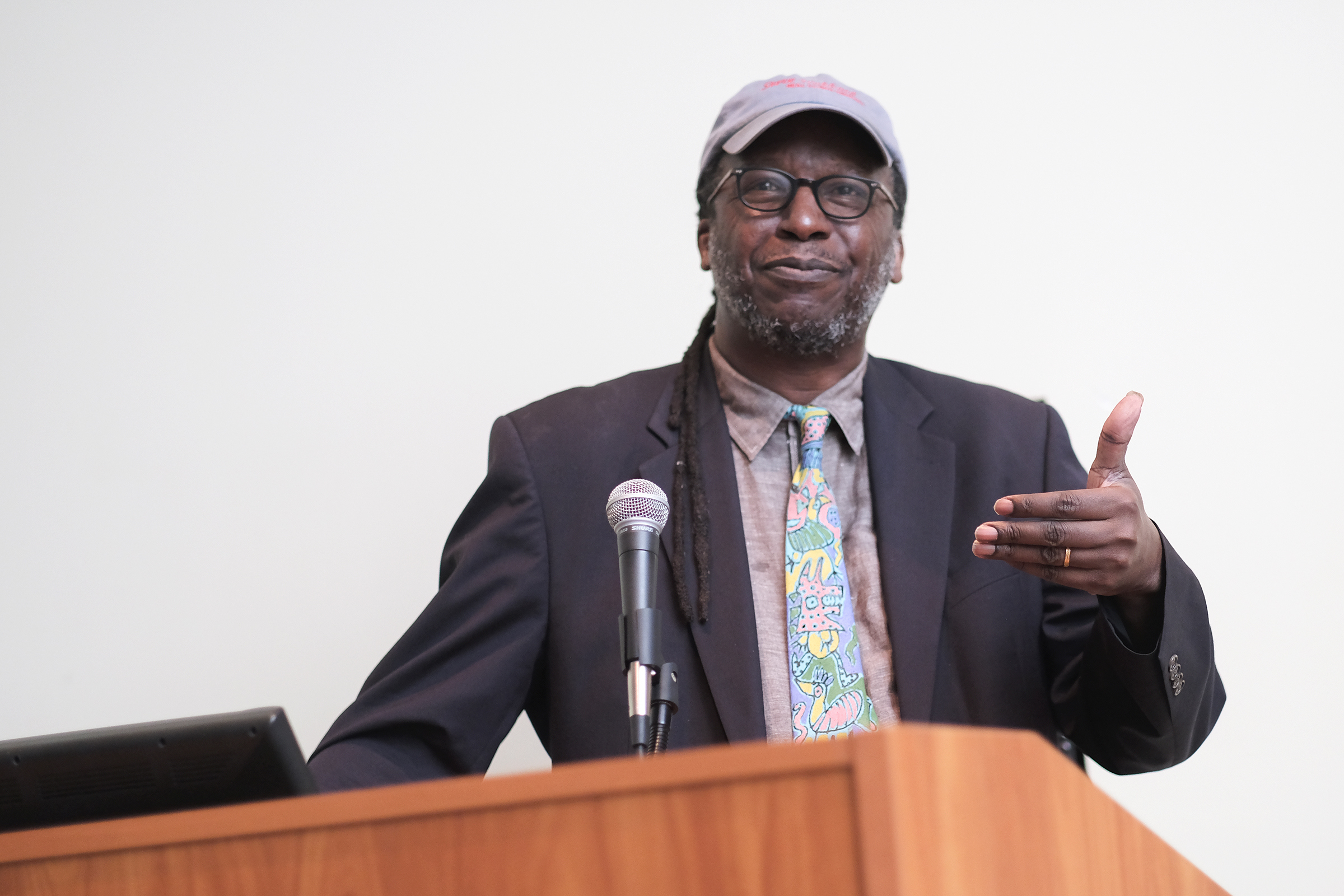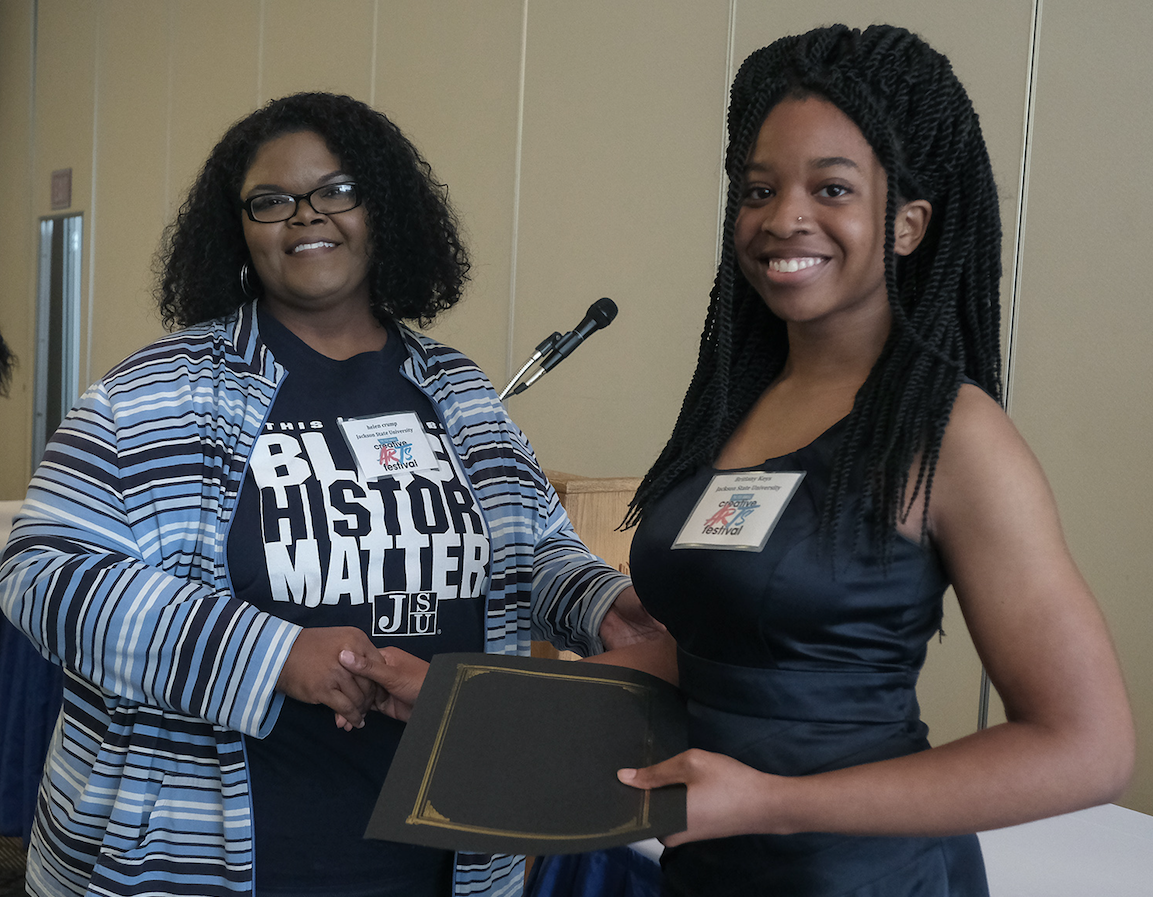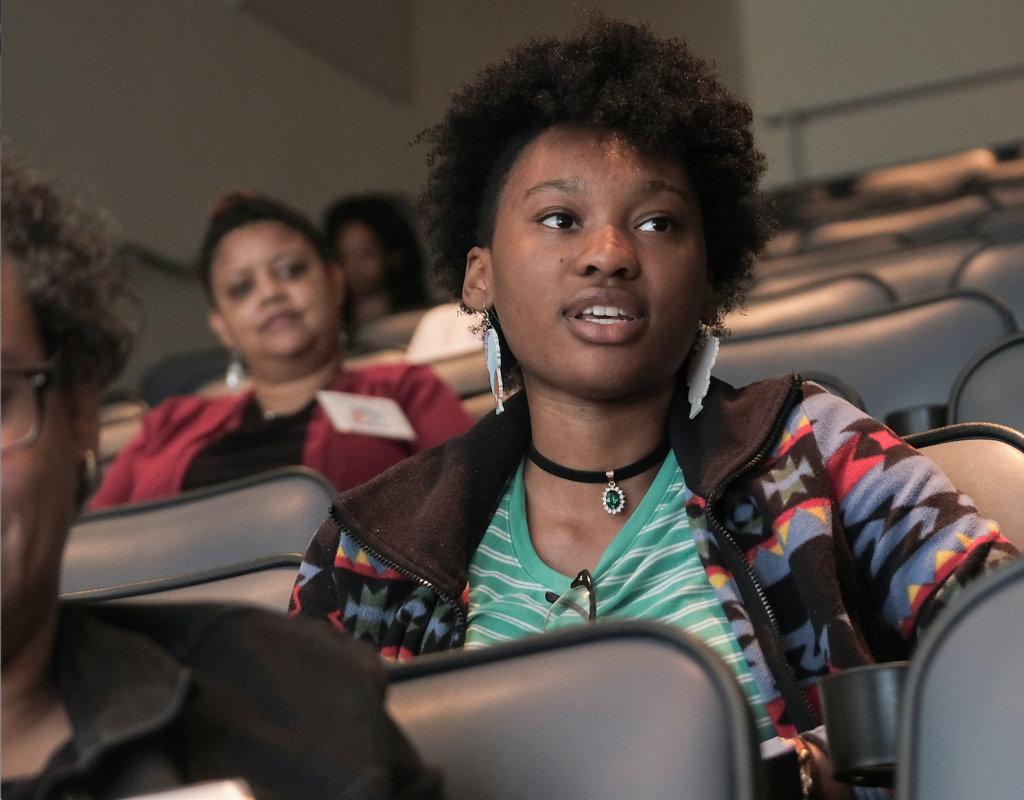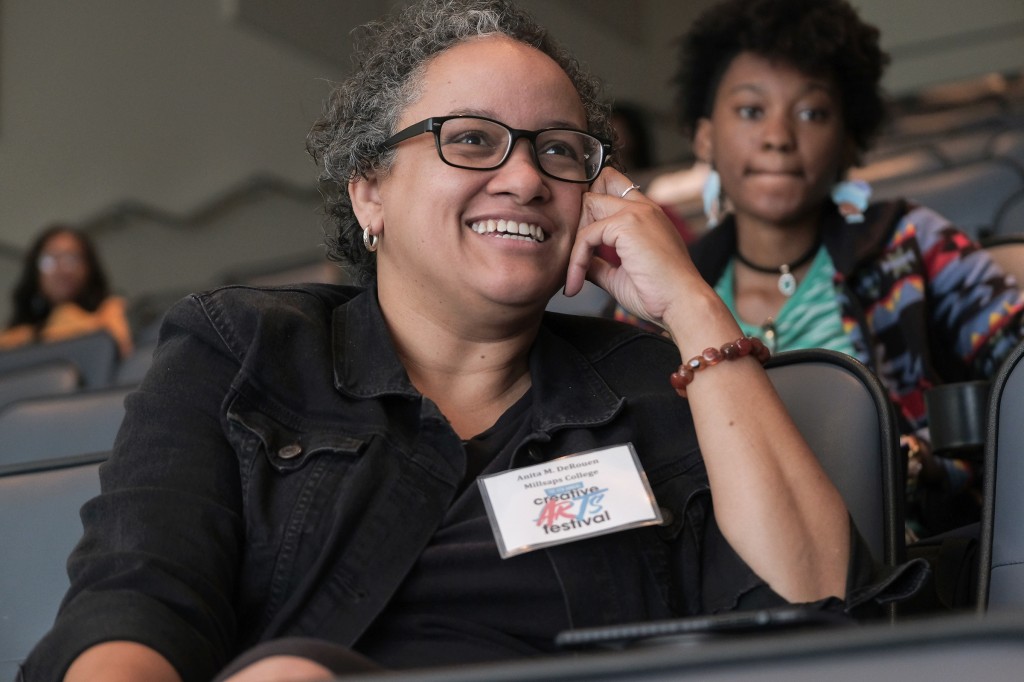
![]()
[hr]
Esteemed writer Cornelius Eady moved attendees with his poetry reading and JSU graduate student Brittany Keys received $1,000 for her essay “Triggers” inside the JSU Student Center at the 11th Annual Creative Arts Festival hosted by the Margaret Walker Center April 12-13.
“I love this. I can’t praise JSU highly enough for doing this. It’s so important to put a spotlight on the creative arts. Arts are just as important as trying to figure out how to do business or how to learn anything else,” Eady said.
Following the tradition of author Margaret Walker, who hosted a 1973 conference at JSU with “20 outstanding black women who are poets,” the arts fest annually features leading black artists and writers.
Dr. Robert Luckett, director of the MWC, and Dr. Helen Crump, associate English professor at Jackson State, coordinated this year’s event.
Crump said, “The Creative Arts Festival is an opportunity for students to be encouraged to showcase and present their artwork, poetry, research and written work. It’s engaging, exciting and enlightening to really see what our students are thinking about and the artistic work that they’re doing.”
The conference consisted of a multitude of panel discussions and a screening of a documentary: “The 30th of May” – the untold story of an African American-led Memorial Day customary in the deep South dating back to the end of the Civil War.

Keys, whose essay won the Margaret Walker Alexander Annual Award for its depiction of the black experience in the American South, said she was elated by the honor.
“I’m very excited. I didn’t feel when I first started writing that I would win because I’m a physics major. I’m so used to writing non-fiction, but this gave me a chance to write fiction for the first time,” she gushed.
Keys also described why she feels the arts are significant. “It definitely creates a balance, and I feel like there should be a balance between the hard science and the arts. I don’t feel like the two things are separated.” She said, “I feel art and science go hand and hand together because some things that I learn about in science has an art to it.”

[dropcap]T[/dropcap]he author of eight books of poetry, including “Hardheaded Weather: New and Selected Poems” (Putnam, April 2008), Eady’s 2001 work “Brutal Imagination” was a finalist for the National Book Award.
Calling his poems “black family motivated,” he curated his JSU presentation of poems based on his participation in the festival’s roundtable discussion “Callaloo and Cave Canem: Publishing the African Diaspora.”
“When we started talking about our influences and where we’re from, I thought it might be good to let people know where I’m coming from,” said Eady, a co-founder of Cave Canem – a national organization for African-American poetry and poets.

“Tramp;” “John Henry’s Hammer;” “Nina’s Blues;” “Why Was I Born;” and “How to Do” were some of the selections Eady read for his listeners. He also shared “Brutal Imagination,” from his book of the same name, which is narrated through the lens of the black kidnapper invented by Susan Smith, the white mother, to hide the fact that she had drowned her two young sons.
He further explained that his poems attempt to talk about a black family in the same manner people discuss Sterling Brown – a distinguished poet, professor, folklorist and close friend of Margaret Walker.
“When I talk about other aspects of African-American life I think I take a cue from that and try to figure out, by using my family as a source, how to talk about the universality of African-American families,” he said.
The professor articulated that when he is reading poetry, he is acting as a vessel for his family and that poetry does not always have to be some “grandiose theme.” Eady explained that there is something about “family that’s literary, too,” and he wants to reflect that in his work.
“I’m a Fool to Love You” is the first poem in Eady’s autobiography “Jukebox” and one of his favorites. “That’s really a story my mother told me about how she and my father met. We kind of forget that they (parents) had a life before we entered,” he laughs.
Dr. Anita DeRouen, director of writing and teaching at Milsaps College, attended the festival and announced that she had been a fan of Eady’s since the late ’80s early ’90s.
“For me, the first half of his reading today was pulling from a lot of his early work and speaks to the heart, and the family and the joy of life. Kind of that strange joy and pain that we sometimes feel in those lessons that our grandparents teach us and the ways that we talk at home,” said DeRouen, who is also an English professor.
She also recommended Eady’s second book, “Victims of the Latest Dance Craze,” which won the Lamont Prize from the Academy of American Poets in 1985.
“I have to thank him for being an artist who has work that will tell me the truth about the world and show me how to look at the world without rose-colored glasses.” She says, “But he’s also going to give me something real – that’s the love and joy; that’s going to help me make it through the hard part of seeing the way the world is.”
She then adds, “You can’t go wrong with Cornelius.”






